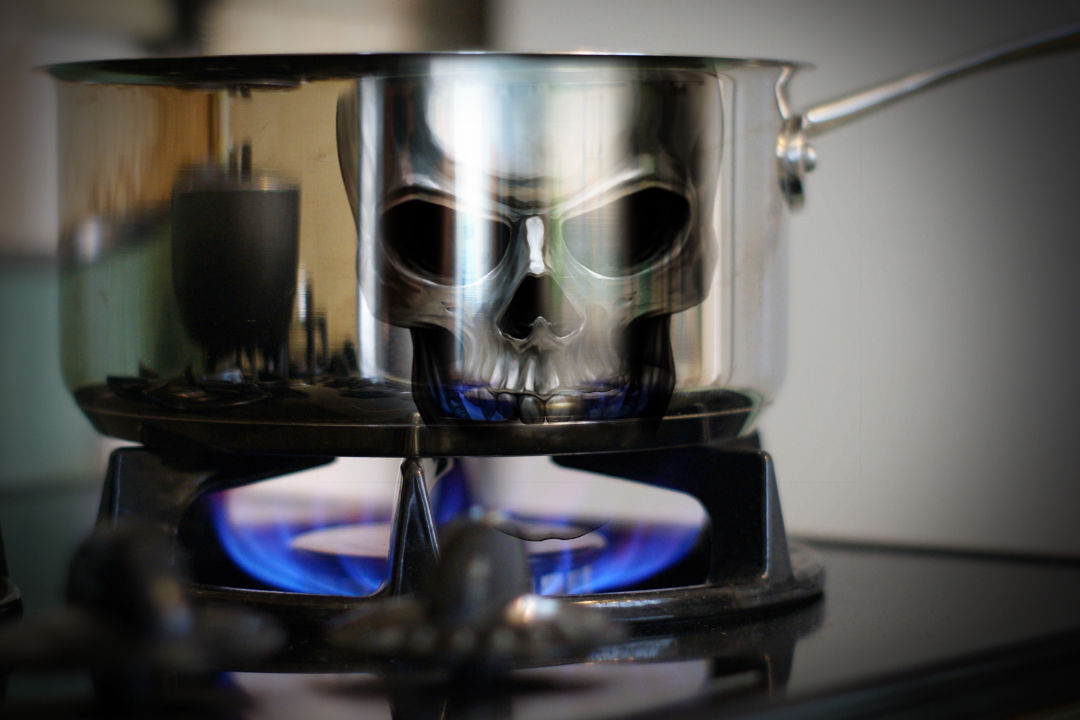Are Gas Stoves Killing Us?

A little more than a week ago, a government official cited a study that attributed childhood asthma to gas stoves. People freaked out. Liberals shamed uncaring conservatives, while conservatives accused liberals and the Biden administration of wanting to confiscate their kitchen appliances.
Are gas stoves making us sick? Is this an example of government overreach striking at our God-given freedoms? Or has a relatively minor issue been foisted upon us as part of the never-ending culture war of American politics?
On Jan. 9, Richard Trumka, a commissioner at the Consumer Product Safety Commission, called gas stoves a “hidden hazard” and said that the federal government agency would consider getting rid of them. “Any option is on the table,” Trumka told Bloomberg. “Products that can’t be made safe can be banned.”
The study Trumka cited was a meta-analysis from December that attributed 12 percent of childhood asthma to the presence of gas stoves in homes. That’s on par with secondhand smoke. This is not necessarily new information. For decades, studies have shown that there are potential health risks to burning gas indoors, and research shows that gas stoves, even when they are not turned on, can emit toxic chemicals like benzene, xylene, toluene and ethylbenzene, which are known carcinogens.
Does this mean you should rip out your gas appliances immediately and go all in on an induction stove? Not necessarily. I asked Dr. Joelle Miller, a pediatric cardiologist for Johns Hopkins All Children's Hospital, help me interpret the data.
“Association does not equal causation,” Miller says. “Gas stoves are not a huge factor in the management of childhood asthma, as far as we can tell.”
Overall, Miller says, more studies are needed, but for the pediatric pulmonologists that Miller has consulted, gas stoves are not a primary focus. “If you’re a mom and you have a kid with asthma,” Miller says, “you might want to buy an induction.”
So are federal agents going to bust down your door and black bag your stovetop? White House press secretary Karine Jean-Pierre said that Presdient Biden "does not support banning gas stoves.” But some states, like New York and California, have already implemented gas stove bans in new buildings.
The City of Sarasota has vague, long-term electrification plans, but no suggestion that it might ban gas stoves or gas lines. According to city sustainability coordinator Jeff Vredenburg, Sarasota’s Ready for 100, a pledge the City Commission made in 2017 for the city to use 100 percent renewable energy by 2045, aligns with electrification.
“A large percentage of the total energy expended in the food sector comes from the transportation and cooking of food,” Vredenburg says. “Electric stoves can increase the efficiency and also produce fewer indoor emissions.”
If you balk at the notion of using an induction or electric stove because you fancy yourself a culinary enthusiast and believe that gas stoves are superior cooking devices, think twice. For nearly 100 years, oil and gas companies have cooked up ways to convince consumers that gas stoves are superior appliances. In fact, gas company P.R. is so good that a 1930s ad campaign created an expression that we still use today: “Now you’re cooking with gas.” Today, oil and gas companies pay Internet influencers to preach the supremacy of gas stoves and hire P.R. firms to infiltrate Nextdoor comment sections in cities considering bans.
In Florida, a complete gas stove ban wouldn’t affect that many people. While 38 percent of homes in the United States have gas appliances, just 8 percent of Floridians do. That didn’t stop congressman Matt Gaetz from posting messages like this:
You’ll have to pry it from my COLD DEAD HANDS! #FoodieRevolt pic.twitter.com/q8K323rbgJ
— Matt Gaetz (@mattgaetz) January 12, 2023
Or Gov. Ron DeSantis’ communications team from turning the dispute into a meme:
Don’t tread on Florida, and don’t mess with gas stoves! pic.twitter.com/FNETzpuANe
— Ron DeSantis (@GovRonDeSantis) January 12, 2023
But are gas stoves good to use in Florida anyway? We don’t need to heat our homes much, and on hot summer days the last thing you want to do is add radiant heat to your already sun-cooked household.



